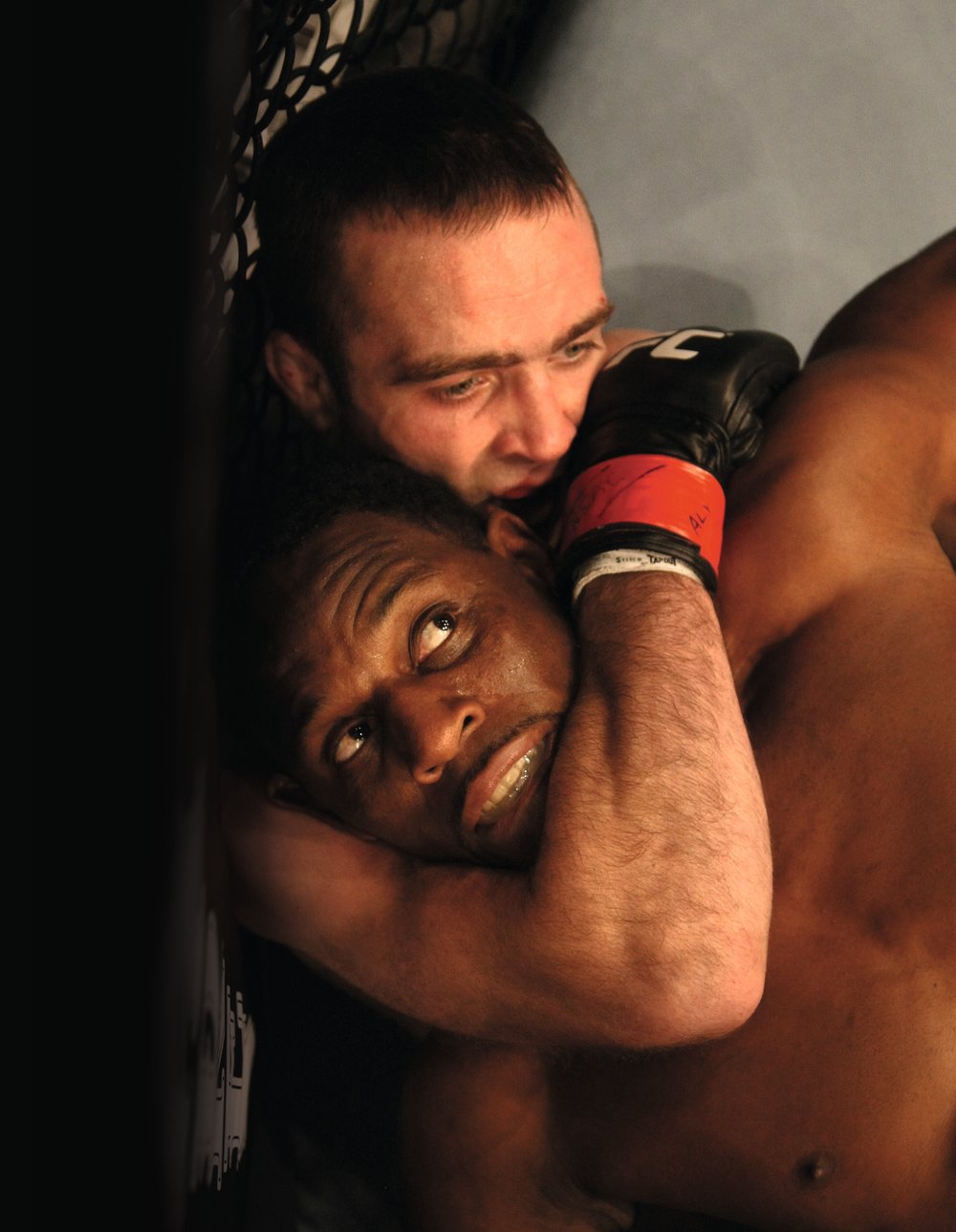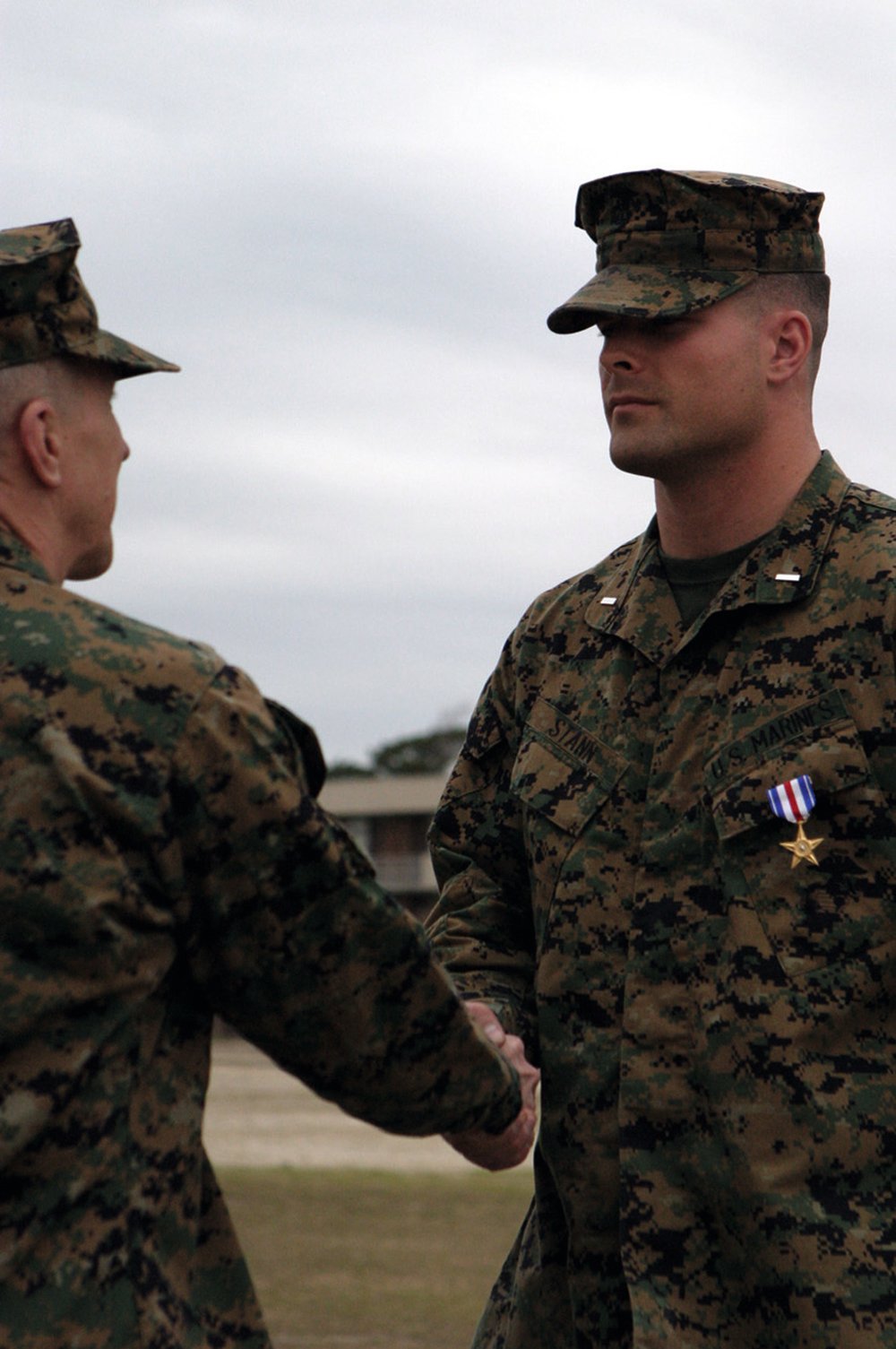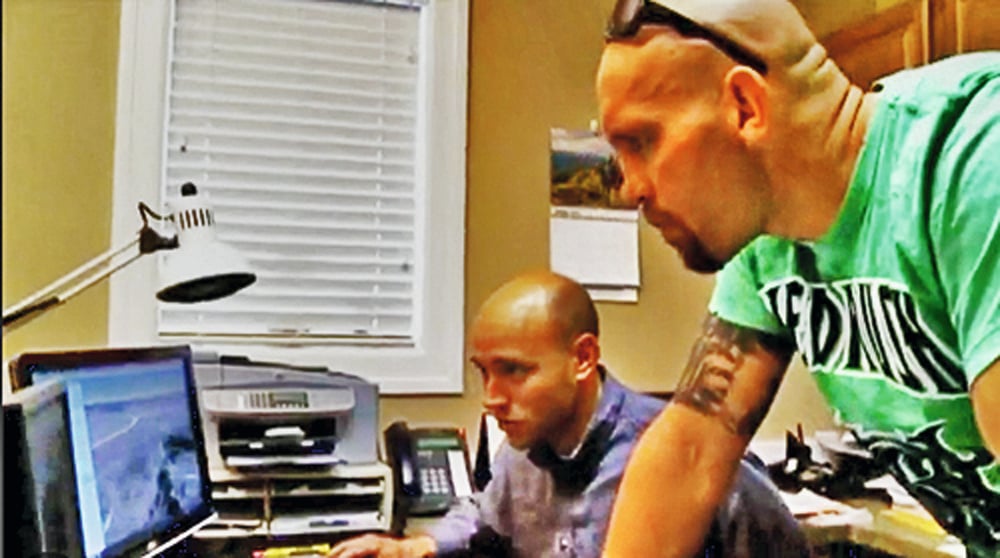
Issue 084
January 2012
Mixed martial arts’ fanboy favorites who juggle full-time jobs with their cage careers
When most of us think of professional athletes, we think of sports car-driving and expensive jewelry-wearing playboys whose weekly paychecks dwarf most of our yearly salaries. New York Yankees third baseman Alex Rodriguez pocketed a cool $33 million last season to run around the bases 67 times. For those keeping score, that’s $634,615.39 every week or $492,537.31 every time he touched home plate.
LA Lakers star Kobe Bryant made $24,806,250 dollars last season to put a ball through a hoop 965 times. That’s the equivalent of $477,043.27 per-week or $25,705.96 per-basket.
Indianapolis Colts quarterback Payton Manning made $15.8 million to throw a ball 4,700 yards. He was only successful 66.3% of the time he attempted to do his job, yet he still managed to bank $303,846.15 a week.
Tampa Bay Lightning center Vincent Le Cavalier made $10 million to put a puck in a net 31 times last season, which amounts roughly to a $192,307.69 weekly salary or a $322,580.65 per-goal compensation package.
Sure, these are oversimplifications of the roles and duties of the players in the above examples, but the figures are accurate ones. The lowest paid players in the aforementioned four major league sports make an average minimum salary of $424,272 per-year, which is more than most mixed martial artists will make their entire career.

The point we’re trying to illustrate is a simple one: MMA, as a growing sport that has existed less than 20 years – only the past five of which have been profitable – doesn’t make millionaires out of more than a handful of its competitors, at least not yet. That’s not to say that it won’t some day prove to be a fruitful career path, but until then, unlike their well-paid counterparts from other sports, more than a few fighters find themselves forced to continue to punch the clocks at their more traditional day jobs in order to afford to pay their mortgages and their family’s living expenses.
“I don’t think I could pay the bills just by fighting in the UFC alone, to be honest,” admits UFC lightweight Jacob Volkmann. “People always assume I’m rich and I don’t even want to bother talking to them when they say that. A lot of the guys who aren’t working and are just fighting full-time don’t have three kids and a wife, so they can get by on a lot less money.”
Volkmann is the proprietor of his own chiropractic practice in White Bear, Minnesota, but that isn’t the only paying gig the married father of three has outside the Octagon. Besides working part-time realigning and adjusting the vertebrae of anywhere between 15 to 20 clients per week at Volkmann Chiropractic, he also earns a paycheck as a wrestling coach at a local high school. The job has other extrinsic benefits than the financial ones it provides.
“The main reason I started coaching was to get referrals for my chiropractic practice and I also wanted to get my foot in the door for when my two boys start wrestling so I can coach them. I’ve wanted to be a chiropractor since I was a little kid. I grew up on a pig farm and we did a lot of picking rocks and baling hay and heavy labor, so I had some lower back problems and a tight neck from wrestling, I went to a chiropractor when I was like six years old and I fell in love with [chiropractic medicine] because it helped me out so much and I knew I wanted to do it. The business pays for itself right now. I’m just trying to build the number of patients I have and then later on, when I’m done fighting, I’ll have a decent career to fall back on.”
Another major benefit of being his own boss, Volkmann says, is that he can set his schedule around his training, especially when he has a fight to prepare for. It’s a path also being walked by more than a few of his colleagues.

UFC middleweight Brian Stann, who is the president of Hire Heroes USA, an Atlanta, Georgia-based non-profit organization that helps train and place former servicemen and servicewomen in civilian jobs after they leave the military, agrees with Volkmann. Although he probably logs more combined hours than he would with a more traditional 9–5 job between his intertwined roles with Hire Heroes and as a UFC ambassador – both of which require extensive travel for appearances and speaking engagements – Stann says it’s a love of what he does that makes his jobs so much easier.
“Last weekend I was in Washington, DC for the Marine Corps Marathon. This weekend I have to go back to DC for a speech at Walter Reed Army Medical Center. The following week I go from Norfolk, Virginia to St Louis, Missouri, then to Los Angeles, then back to Atlanta for a charity event for Hire Heroes. The travel is tough, but I really am happy. It’s a privilege to be a professional athlete. It really is. To be completely honest, I had no intention of becoming a full-time fighter. I figured I’d take a few fights here and there, but I never dreamt that I’d come this far. It’s a dream come true and I have no complaints.
“The fact that I can come into the office early in the morning and leave to train once or twice throughout the day is amazing,” Stann explains. I have such trustworthy key members on my team that I can go to Albuquerque and run my training camp and really trust that they’ll keep the day-to-day operations going like a fine-tuned machine. The great thing is that my two jobs actually feed off of each other too. I used to have to try to get the media to ask me about Hire Heroes so I could publicize the organization. Now they all want to talk about it, which just goes to show you how great this sport really is. The media likes to focus on worthwhile causes like ours, which is a good thing.”
Although getting paid is an obvious benefit of working as much as he does, Stann’s motivation for doing what he does isn’t purely a financial one. Giving back to the men and women, who like him, served their country is something he says he’ll likely continue to do for the rest of his life in some capacity.
In a lot of ways, Brian says the soldiers he meets through the organization actually inspire him to put his all into not only his work finding military veterans like them work, but also motivate him to push harder in training and fighting.
“What we do means a lot to me. It’s very special. I get a lot of my motivation to fight and to train through the things that we do through our organization,” says Stann, who is a decorated war veteran himself. “It’s nice to have something else to fall back on that just makes you happy in your life. If you just focus all the time on fighting, it adds a lot of pressure to your life.” Their stories can also help put life into perspective when things are tough, like following Stann’s most recent outing – a heavy defeat to Chael Sonnen.
“Obviously, when you come off a tough loss it can destroy your personal life. When I come home I have to walk into the living room and I have to be Daddy to my two girls. I’ll be damned if I’m going to let my kids see me with my head hung because I lost a competition. I’ve seen real loss and losing a fight doesn’t even begin to compare. I gave a speech last weekend to an audience of 300 that was comprised mainly of five families. What they all shared in common is that they had all lost a son or daughter who was a Marine or soldier. That’s real loss. I always try to remember how bad things can get and I really feel blessed for what I have in my life.”
Like Stann, Ivan Menjivar has always thought of his family first when making career decisions, which is why he took a near four-year hiatus from fighting to work and support his wife and two young children. A knee injury he suffered in an October 2006 Shooto fight with Caol Uno worsened when he fought Bart Palaszewski in the IFL a month later, rendering him unable to fight and unable to earn a living through fighting. With a baby on the way and a long waiting list for surgery in Montreal, Ivan realized his dream of being a full-time fighter was not a viable one, especially at a time when the paychecks rarely made it up over four figures.
He took a job as a security agent at the Montreal Airport where he worked checking bags and screening passengers before they boarded their flights until being laid off in November. Even though he’s back in the UFC and riding a two-fight win streak, the 29-year-old bantamweight is already looking for another way to earn a second income in case his fighting career comes to another abrupt halt.
“I like working because it relaxes my brain from training. I want to continue working even though I’m back fighting. We fight because we love fighting, but at the same time we do it to bring money into the house – to take care of our families,” Menjivar explains. “Family is very important. It’s important to spend a lot of time with them because when training camp starts, I spend a lot more time in the gym. I still try to give them as much time as I can to make them feel better. You need to be there for them. Parenting to me is important. It’s nice that I have time to play with my kids. Lots of people with other jobs don’t get to see their kids very much except on weekends. I make them my priority.”

Shane Carwin is another fighter who works Monday to Friday to not only ensure his bills and his family are taken care of, but to also make sure he has a “plan B.” He knows all too well that the relative fame and fortune afforded in the pro sports can disappear at the blink of an eye.
“When I was a hot NFL prospect I had a lot of people banging on my door with offers of greatness. When the NFL went, my offers, my first wife and everything else went away with it too. It was just me and my son Kamden, so I had to make a decision to keep going with my life and find a way to secure our future. Getting my degree and finding work in my field was a huge accomplishment and it has allowed everything else to happen.”
Carwin takes no liberties at his engineering job with the North Weld County Water District, even though he’s been offered concessions, because he doesn’t feel that he’s any different than any of his co-workers just because he’s on the cover of magazines or on TV. That, and if he doesn’t keep his inbox empty, a lot of Colorado residents won’t be too happy with him.
“I am blessed to have a great boss who is a former athlete, so they work with me. I use my sick time and vacation time whenever possible. I am lucky that my job allows me to work ahead of plans and that allows me to be in line with the rest of the department here at work. I design all of the hydraulic modeling systems that run our area,” Carwin explains, pointing out that if the system he designed runs into a problem, it could result in no water for thousands of homes.
“I love what I do and I love who I am working for. Aside from a willingness to work with me and around some of the medical issues [my company hasn’t really had to accommodate my other job]. I am just like every other employee. I have a job to do and they expect that job to be done and done on time. Credit goes to my amazing management team. They help me find a balance and are willing to work around my schedule and needs. That helps a lot.”
If only every employee had the same attitude as Carwin, the economy might be in a better place than it is. Part of what sets him, like many of the other men mentioned above and their counterparts who work inside and outside of the cage because they have to or simply want to, is that they lead by example.
“I want my son and daughter to grow up understanding that having a job is not a hindrance to chasing your dream,” former UFC interim heavyweight champion Carwin simply states. “I want them to know anything is possible if you get an education and apply what you learn.”
Kobe Bryant and co could all stand to learn a thing or two about work ethic from some of our modern-day weekend warriors.










